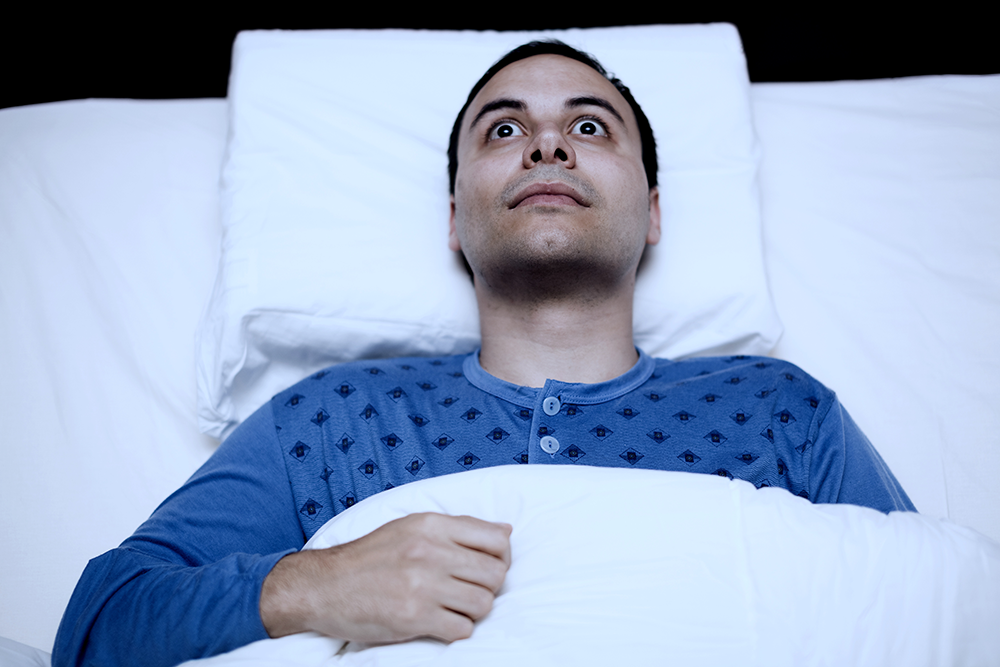Sleep Deprivation and Heart Disease

A 2011 study by the American Heart Association found poor quality sleep to increase high blood pressure risk, which can then lead to heart disease.
I had the pleasure of collaborating with leading alternative health expert Bryce Wylde. Bryce Wylde is a highly knowledgeable and respected natural healthcare clinician whose specialty is homeopathy, clinical nutrition, supplementation, and botanical medicine and whose focus is routed within functional medicine.
In this three-part series, Bryce shares information ranging from the connection between sleep deprivation and heart disease to the diagnosis of sleep apnea and the impact of snoring, as well as steps you can take to ensure a quality nights sleep.
Sleep deprivation
Sleep is measured physiologically by electrical changes in the brain. Sleep is quantified in the amount of time spent in or out of REM (Rapid Eye Movement). The duration from the beginning of non-REM to the end of REM is an important aspect of your sleep pattern. This is referred to as sleep architecture. Sleep architecture varies widely across species, and is thought to be significantly influenced by genetics. But no matter your eye or hair color, or where you’re from, you’ve heard of the general importance of 7-8 hours for optimal health. There is a reason for that. For optimal sleep, it is necessary to experience full and uninterrupted sleep cycles. It takes the average person about 90 mins to get through one full sleep cycle. Sleep research has concluded that we need 4-6 cycles per night to feel our best. Do the simple math and we need 7-8 hours. But accomplishing optimal sleep isn’t as easy as clocking 8 hours on your pillow.
Science has previously shown that those of us who are regularly sleep deprived or have interrupted sleep – especially those of us who snore – are more likely to have high blood pressure, diabetes and narrowed blood vessels. Each of these can decrease blood flow inside the brain. Brain cells require ample oxygen and sugar. Without ideal blood flow to the brain this will affect its ability to work properly and recall information. To boot, during sleep you can strengthen memories and practice skills you learned while awake in a “virtual” environment.
Sleep deprivation, inflammation, and heart disease
The Connection Between Sleep Deprivation, Weight Gain, and Heart Disease

A lack of sleep can directly impact your weight and overall health.
Studies have shown a lack of sleep promotes the expression of a gene linked to obesity. Both sleeping too little (less than 5-6 hours per night) and too much (greater than 9-10 hours per night) are associated with weight gain.
Researchers also propose a lack of sleep can lead to a vicious cycle, meaning poor sleep equals weight gain equals conditions that interfere with sleep which equals continued sleep deprivation.
Appetite
Sleep quality and quantity impact the appetite regulation hormone ghrelin. Ghrelin levels decrease after a meal and increase between meals.
Leptin is another hormone that reduces feelings of hunger. Leptin levels increase during the day and peak at night.
Adipose tissue secretes leptin while the stomach secretes ghrelin.
Sleep deprivation has been shown to increase the ratio of ghrelin to leptin leading to increased appetite and specifically increased carbohydrate cravings. Many studies have shown a lack of sleep leads to increased caloric intake throughout the day.
Breathing Disorders
Continue readingSleep Weight Loss – Lose Weight by Getting a Goodnight’s Sleep
Do you get enough sleep? 7-9 hours each night? If you are struggling to lose weight, adequate sleep is essential.
Sleep deprivation affects the balance of two hormones that regulate appetite and satiety – leptin and ghrelin. Leptin is produced by fat cells and signals the brain when you are full. Ghrelin is produced by stomach cells and signals the brain when you are hungry and should eat. Studies show when you are sleep deprived, leptin levels decrease and ghrelin levels increase. This causes you to feel the urge to eat more when you do not get enough sleep.
Here are five tips to help you get a good nights sleep:
1. Exercise regularly.
Being regularly active during the day makes falling asleep easier. As little as 20-30 minutes of activity helps. Don’t exercise too late, which can actually stimulate the body and make sleep more difficult.
2. Avoid alcohol, caffeine, and tobacco.
Alcohol makes falling asleep easier, but reduces the quality of sleep you receive. Caffeine can still interfere with sleep up to 10-12 hours after consuming it. Nicotine found in tobacco acts as a stimulant which may disrupt sleep.
3. Select bedtime snacks that promote sleep.
A light snack before bed may promote better sleep, especially if it contains the amino acid tryptophan, calcium, and carbohydrates. Some good bedtime snacks include:
Warm milk with half a peanut butter sandwich
Low fat yogurt with granola
Hot chamomile tea with a piece of fruit
4. Avoid a large meal or too much liquid close to bedtime.
Consuming a large meal before bed can make sleep difficult due to the bodies focus on digestion. Too much liquid before bed can cause you to wake for frequent bathroom trips.
5. Keep a regular bedtime schedule.
This is one of the most important habits you can maintain to achieve adequate sleep. Go to bed and wake up at the same time each day, including weekends. This will make it easier to fall asleep and improve your overall quality of sleep.
What is one thing you can do this week to get more sleep?
Drs. Chris and Kara Mohr developed the 21 Days to Better Sleep program. I highly recommend it. Their videos with instructions are engaging and the content can be put to good use so you achieve quality sleep each night. Learn more and purchase the program here.
All the best,
Lisa Nelson RD



